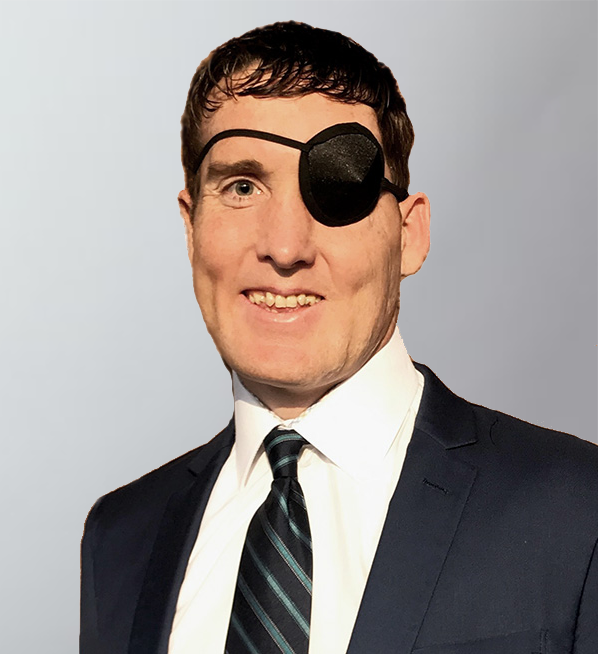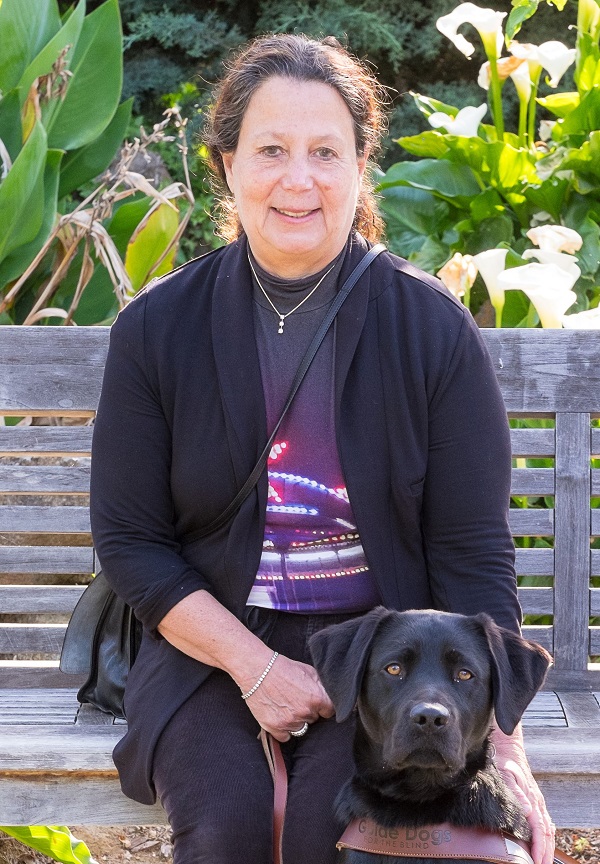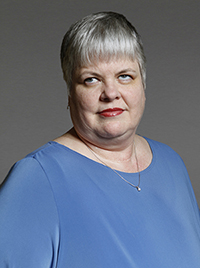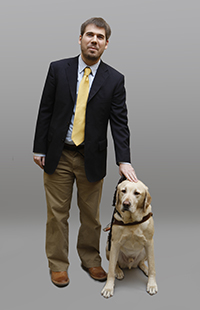The Americans with Disabilities Act (ADA) became law in 1990. The ADA is a civil rights law that prohibits discrimination against individuals with disabilities in all areas of public life, including jobs, schools, transportation, and all public and private places that are open to the general public. Below is a collection of reflections from AFB staff members about the impact the ADA has had on their own lives and what the future of the ADA holds for people with disabilities.
Janni Lehrer-Stein, AFB Board Member
While I am not a member of the ADA generation, I am grateful that it exists, because I lived through the years before the ADA was enacted and witnessed the tremendous challenges and sacrifices that led to its development and passage. The original author of the ADA, Tony Coelho, led a coalition of dedicated civil rights activists to extend the basic rights and protections that we are now so accustomed to. We tend now to dismiss those efforts too lightly, as many of my colleagues crawled the steps of the Capitol, occupied the US Department of Health, Education, and Welfare offices in San Francisco, lobbied, argued, and battled in order to ensure that Americans with disabilities could take their rightful place as full citizens.
As we celebrate the ADA 30th anniversary, I congratulate and thank those pioneering spirits, and hope that the generation that has grown up under the ADA understands that they would not have been able to obtain their education, opportunities, and aspirations without the hard work done by those who worked tirelessly to ensure its passage.
The anniversary also demonstrates the critical lesson that inclusion and opportunity surpass all differences! Passed by President Bush and a Republican administration, it is a reminder that collaboration across political parties, and across all ages, genders, affiliations, and disabilities can be achieved and improve the quality of life for everyone. I look forward to witnessing the emerging leadership of the next generation under the ADA, as we reflect and thank those who made this possible.
Neva Fairchild, National Aging and Vision Loss Specialist
Prior to the ADA, I was a student or a stay-at-home mom, but soon after its passage, I began my career as a rehabilitation professional. In my first job, my employer provided the tools I needed to perform my job effectively, even though there were no formal processes in place to determine what accommodations were needed or budget set aside for them.
However, as a rehabilitation professional over the past 30 years, I have worked with hundreds of people who did not have a similar experience: Hiring managers who don’t know that an applicant with a disability should have access to accommodations throughout the hiring process. Supervisors who deny reasonable accommodations, even when the employee provides it for themselves. Attitudes that exclude people with disabilities from the workplace culture, so they feel isolated and ostracized.
Too many people with disabilities don’t know their rights, or what they can ask for in terms of accommodations to get and keep a job. Simultaneously, employers must expect to have people with disabilities on their teams. Rather than an exception, a team of people that includes those with disabilities must become the norm. Diversity brings differences in thought processes that grow ideas that could not have been nurtured without people with a wide array of experiences contributing.
It isn’t easy to change attitudes, but it’s worth it. We’ve still got a lot of hard work to do to fully employ the talents of people with disabilities.
Aaron Preece, AccessWorld Technology and Information Specialist
As a member of the ADA generation (the law passed a month before I was born), for the majority of my life, I have lived in a world that placed few to no limitations on what I could accomplish. I attended public school with my peers and accessibility was almost seamlessly integrated into the curriculum. I was never discouraged or advised from pursuing any activity or sport, nor led to believe that I would struggle finding employment.
But since I work in the field of vision loss, I feel that a great deal of luck was involved as well. Even though many strides have been made for those with vision loss, true equality still seems out of reach. The employment statistics for people with disabilities are still lower than almost any other demographic and access to modern communications can still be hit or miss.
Recent developments give me hope that the world will continue to move towards full inclusion. In particular, the passage of the 21st Century Communications and Video Accessibility Act (CVAA) has significantly improved access to many digital platforms. Mainstream companies and organizations are increasingly making disability inclusion a key part of their strategy for improvement without the pressure of outside forces. Though legislation has been shown to move inclusion forward significantly, having voluntary buy-in from society seems even more promising.
Tanner Gers, Business Development Lead, AFB Consulting

Little did I know that less than 10 years later, I would need to lean on, and benefit from, the ADA. The spirit of the ADA is equality. But the letter of the law has a moderate influence, if any, on most of society. The societal stigmas I faced one day were none. The next, they were enormous. The corporate stigmas I faced yesterday were non-existent. Today, they seem gargantuan.
The ADA is a gift and a step in the right direction for equality, civil rights, and freedom. One day, I hope the work we do here at AFB helps that law graduate beyond the letters by which it was written, and rises up to capture its spirit, its potential, and its power.


